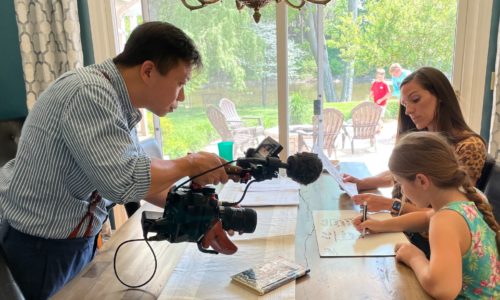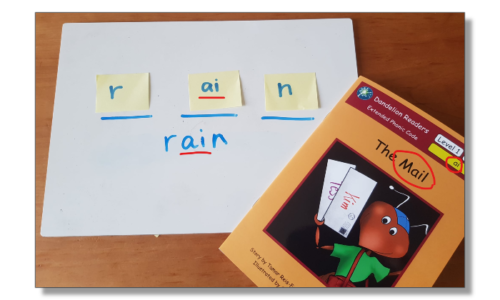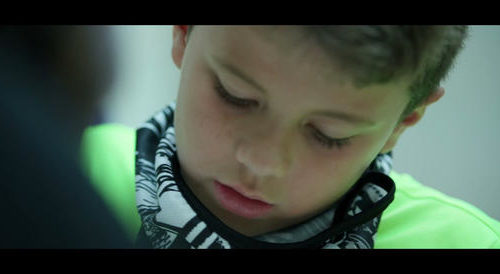Scaffolding the teaching of multisyllabic words – simple to complex Many teachers are focused on teaching kids how to sound out graphemes (spellings) and to blend sounds together into words. They will even be teaching kids how to manipulate phonemes in phonemic awareness activities. These are all essential underlying skills necessary for learning to read. …
Read Morebeginning readers
The Truth About Reading Part 3, Filming gets underway

In Part 3 of this series of guest blogs by Nora Chahbazi, literacy consultant (pro bono) via the John Corcoran foundation to The Truth About Reading documentary team and Founder of EBLI, talks about the emotional impact the production of the documentary had on many of the team. In previous posts, I’ve shared how the documentary came to be…
Read MoreThe role of decodable and leveled texts

I’m a reading girl, but let’s talk math. If you were teaching long division to your students, what does that practice look like? Are you giving children 2 division, 4 multiplication, 18 addition, and 2 simplifying fraction problems (even though they’ve never seen them) for a challenge? Of course you aren’t! In math, ample amounts…
Read MoreTo script or not to script?

What do you think of when you hear the word “scripted” pop up in conversations about teaching reading? For some teachers, the associations are negative. They may think of mindless robotic lesson delivery that strips teachers of their autonomy and creativity and turns them into zombies. The word can trigger worries about limitations in the…
Read MoreCutting Illiteracy: Decodable Books at the Barbershop

So often in the past, I have had parents sit in my reading tuition lessons observe their child, a struggling reader, learn to read. With a structured phonics program and decodable books that support it, the child begins to decode words independently. At first it is laborious and some children may need a great deal…
Read MoreHow to improve spelling: Five simple ways to improve kids’ spelling skills
Raise your hand if you’ve ever heard the phrase “some kids are just poor spellers.” I’ve got both hands and feet raised over here. Children are not destined to be poor or great spellers. All children can grow in their spelling, but we have to make sure we are giving them the proper instruction…
Read MoreWhat is the role of decodable texts?
As conversations about effective literacy instruction continue in schools and on social media, questions about the definition, use, and purpose of decodable texts inevitably arise. I’ve even heard these books described as a “battleground.” I recently watched a presentation on literacy to the school committee in a local district, where phonics teaching is currently layered…
Read MoreWhy would a not-too-wealthy, not-too-poor district abandon Balanced Literacy take the plunge and embrace Systematic Phonics?
Lynbrook District in Long Island, NY is like many districts. It’s not very poor and not very rich. Most of the kids do okay. So, why have the leaders of Lynbrook district decided to take the plunge and ditch balanced literacy for systematic phonics? They decided that too many children were not thriving with balanced…
Read MoreThe Truth About Reading – A documentary feature film on lack of literacy in America

Emmy® Award-winning Director, Nick Nanton has signed on to direct a new documentary feature film from DNA Films® in partnership with the John Corcoran Foundation™ that aims to change the conversation around literacy through highlighting illiteracy, sub-literacy, and learning disabilities, including dyslexia. This guest blog by Nora Chahbazi, literacy consultant (pro bono) via the John Corcoran…
Read MoreLynbrook leads the way on Long Island
Over the years, it has become apparent that the Reading Workshop/Guided Reading model of instruction, popular in U.S. schools, does not produce the results promised. Special Education numbers have increased, and many children get labeled, unnecessarily, as having a “reading disability.” It is undoubtedly a huge undertaking to put the brakes on and start fresh.…
Read More
